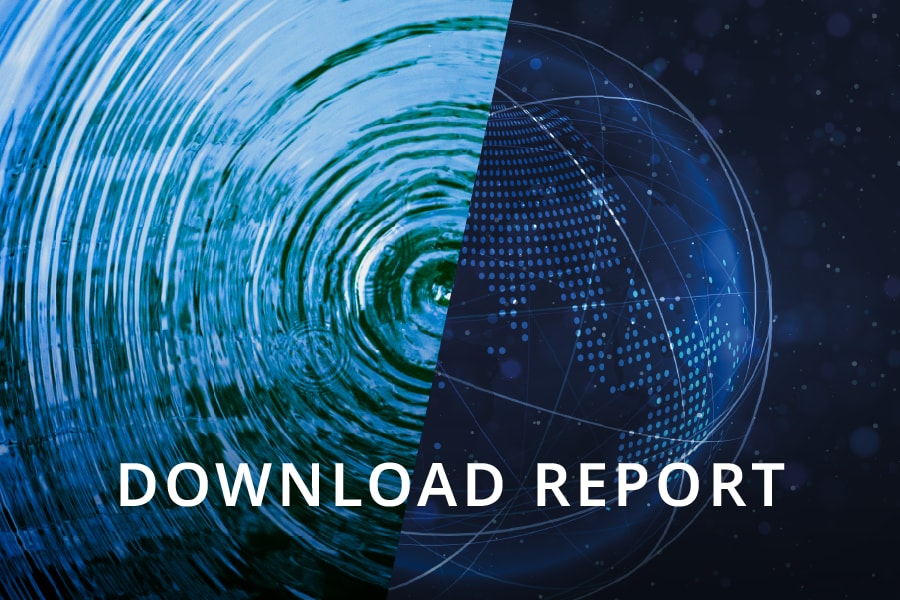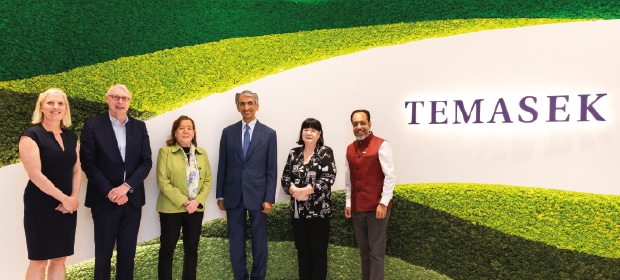Double Materiality Assessment
Our evolving operating environment requires us to continuously sense and adapt. This year, we conducted a double materiality assessment (DMA) that complements our existing understanding and efforts on sustainability.
Sharpening Our Sustainability Focus for Long-Term Returns
A double materiality approach helps to identify the most material matters pertaining to sustainability by considering how sustainability risks and opportunities impact our portfolio and operations (i.e., financial materiality), and the impact of our activities on the surrounding environment and society (i.e., impact materiality).
The insights gathered from our DMA help inform our sustainability strategies and actions across our portfolio and operations to support the delivery of long-term sustainable returns.
Seeking Perspectives from Key Stakeholders
We sought perspectives from our key stakeholders on potentially material impacts, risks, and opportunities relevant to Temasek’s portfolio and operations. Key internal and external stakeholders engaged as part of this DMA included Temasek senior management, employee representatives, our shareholder, and select portfolio companies representative of our portfolio composition.
We considered, where possible, industry best practices and relevant requirements of international sustainability reporting standards in designing the DMA process. We engaged our key stakeholders through interviews and focus group discussions. We also leveraged our ongoing engagement platforms to obtain updated perspectives from other stakeholders, such as the media, bondholders, investment partners, community partners, the general public, and relevant ESG rating providers.
To facilitate the DMA engagements, we shortlisted an initial list of topics across governance, environmental, and social domains based on the benchmarking of Temasek’s peers and portfolio companies. The key stakeholders were invited to share their perspectives on the financial and impact materiality of these shortlisted topics and to highlight any other topics they deem material from their respective vantage points.
Prioritising Our Path Forward
Our stakeholder expectations clearly emphasised the importance of upholding good governance practices. There was strong consensus that business ethics, as well as anti-bribery and anti-corruption, are considered non-negotiable matters that are essential to maintaining our licence to operate. Cybersecurity and data privacy is another governance topic that warrants resource prioritisation as it can have significant reputational and financial impact if not well managed.
The DMA also reaffirmed the importance of climate change as one of the most material environmental topics for Temasek and its portfolio. There was strong consensus that climate change would likely have a direct financial impact on Temasek’s portfolio and operations, given the associated physical and transition risks, as well as the opportunities to address these risks. This DMA insight underscores the importance of keeping up our concerted effort to meet our institutional and portfolio climate commitments.
Most stakeholders viewed employees as the most valuable asset, fundamental to our long-term success. Employee well-being and talent attraction and retention were consistently seen as the most material social topics. Most stakeholders also agreed on the critical role of employee diversity and inclusion in contributing to talent attraction and retention, and emphasised the need to uphold meritocracy.
While other sustainability topics identified were recognised to be important — nature and biodiversity, water, pollution, circular economy and resource use, human rights and labour conditions, supply chain impacts to workers as well as sustainable procurement, most stakeholders were of the view that the materiality of these topics was more variable across sectors and that any impacts, risks, and opportunities associated with these topics may only manifest over the medium to long term. In our engagements with key stakeholders, AI emerged as a topic of growing significance. Stakeholders recognised AI as an enabler for advancing sustainability outcomes, with cross-cutting implications across sectors and corporate functions. At the same time, concerns were raised about its ethical implications and increased energy consumption associated with widespread adoption. These conversations highlighted the need for a thoughtful and considerate approach towards AI development, deployment, and monitoring to enable long-term value creation without unintended consequences.
Based on these insights, we will continue to address these topics in a calibrated manner, refining and stepping up our approach as the environment evolves.


